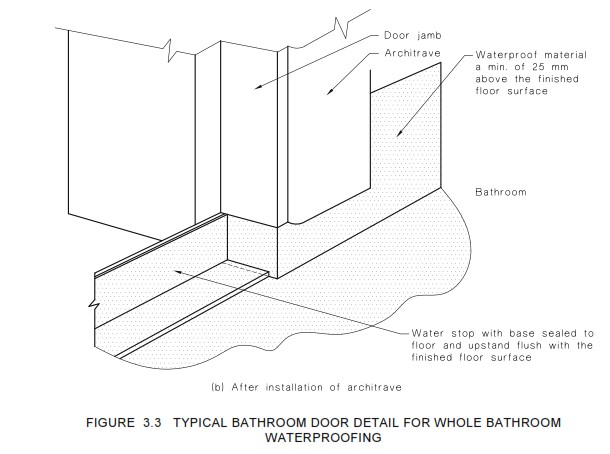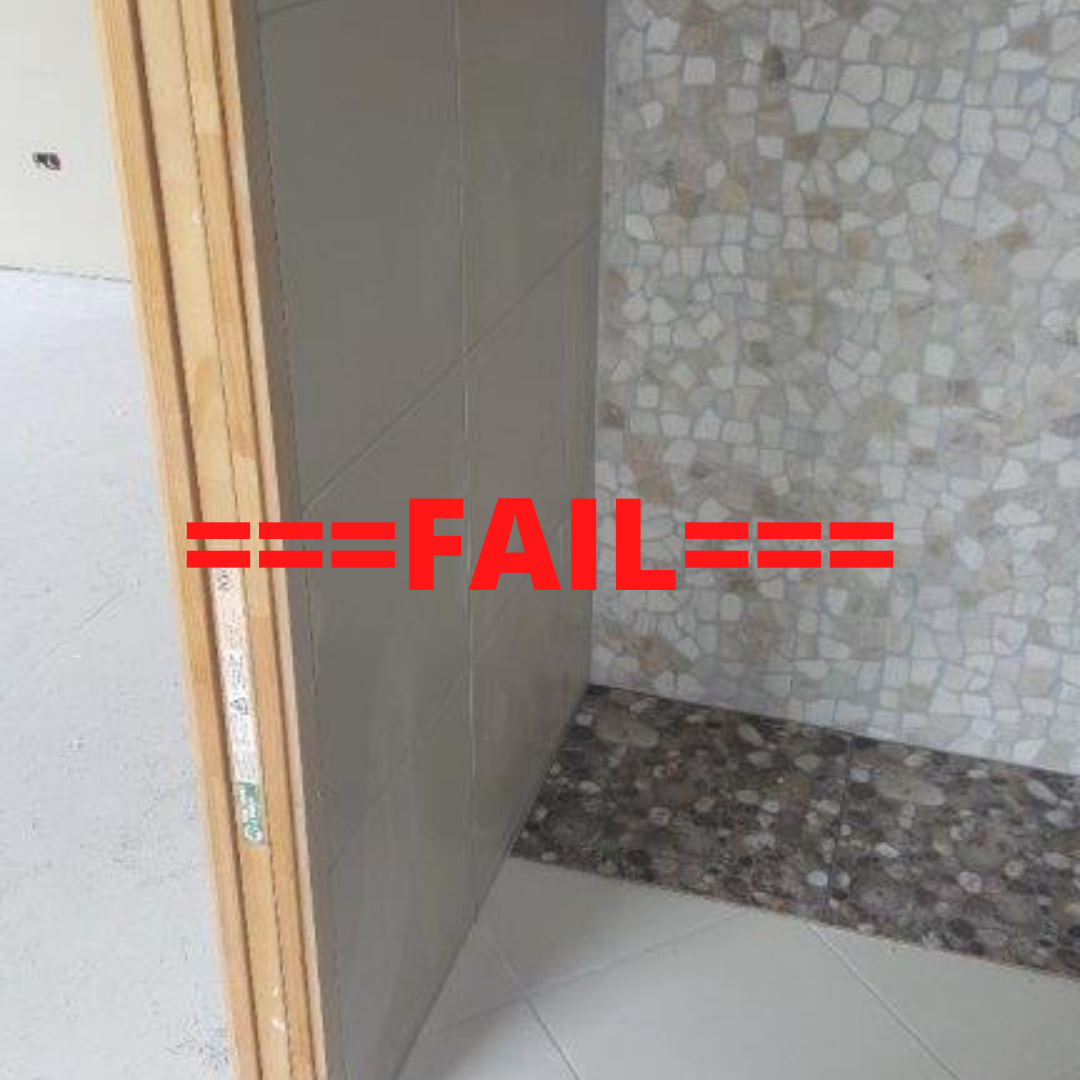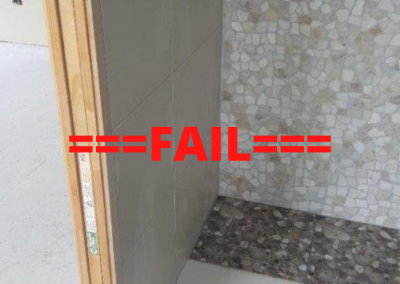Cavity Sliders In Bathrooms
There are two main defects we come across with cavity sliders in bathrooms: waterproofing and tiling. Both are prime examples of how something which seems simple and easy but can turn into a nightmare if not done properly.
Defect One:
Most people don’t realize you can’t affix tiles directly onto cavity slider door frames. The product’s framing system isn’t tested or designed to support the additional loads imposed by wall tiles. Therefore by fixing tiles directly onto the cavity door frame, it is a non-compliant installation and you risk future damage.
How to Fix It
Most builders will add an additional stud wall in front of the cavity slider to allow for proper fixing of sheet lining materials. This gives the wall a strong substrate which won’t deflect and damage wall tiles or waterproofing membranes. If you do want to tile the wall which backs onto the cavity door, consult the door and wall lining system manufacturer as well as your building certifier. It will save you money and heartache in the long run.
For more information you can refer to https://www.qbcc.qld.gov.au/blog/tradie-talk/popularity-cavity-sliding-door-systems-present-some-compliance-issues-wet-areas

Defect Two:
The second issue is waterproofing. The waterproofing must provide a complete barrier where the cavity slider has been installed. Specifically, waterproofing must provide a membrane/return to prevent moisture from discharging from the wet area and entering the wall cavity. To do this, you must waterproof the waterstop angle to the perimeter flashing as per the attached photo.
Failure of waterproofing is hands down one of the biggest issues we deal with. It’s a bit like a building’s foundations. If it fails, everything else fails and the only way to rectify it is by starting from scratch. This means ripping all your tiles out and reapplying the waterproofing. It’s an expensive and messy exercise. Our advice is to call in the experts for waterproofing. And make sure you get a Form 16! (see https://www.renovate2elevate.com.au/building_certification/ if you don’t know what a Form 16 is).
![Renovate [2] Elevate](https://www.renovate2elevate.com.au/wp-content/uploads/2020/05/Renovate_Full_Washed_RGB-e1589871583510.png)

